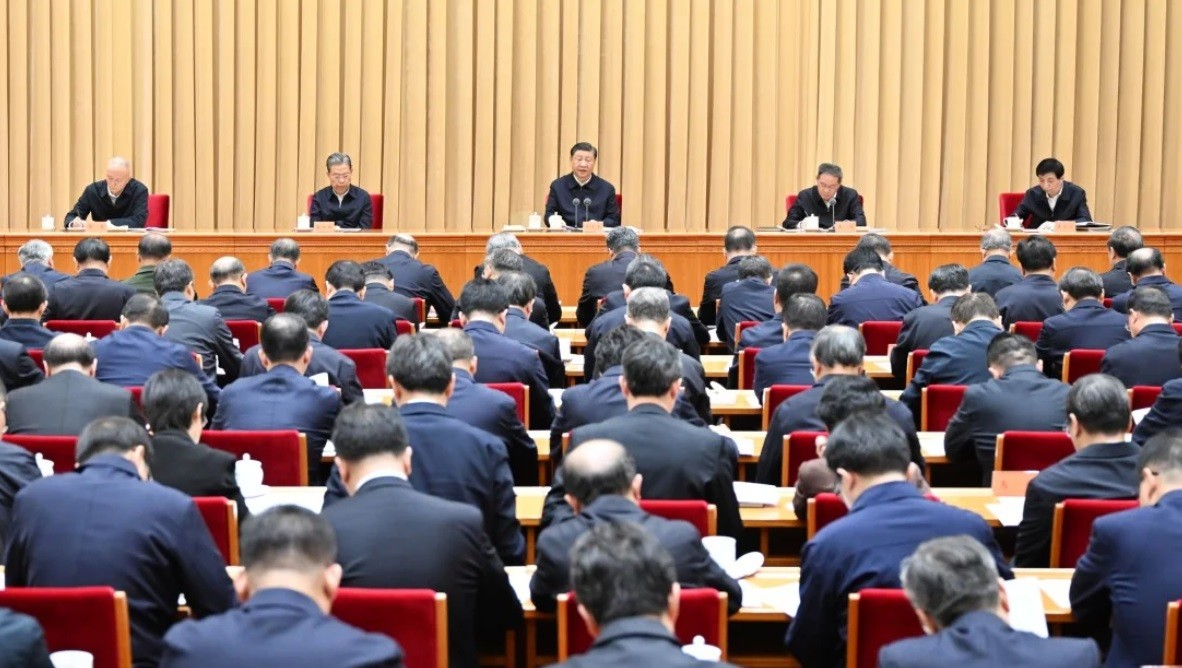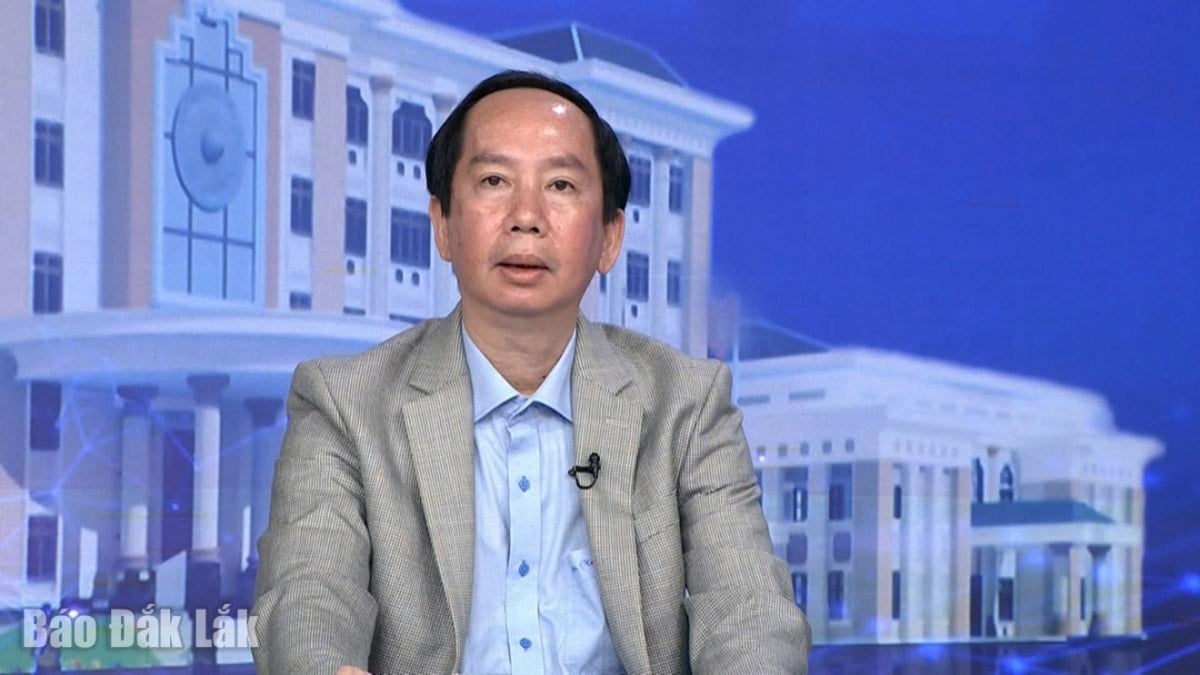 |
| Chinese President Xi Jinping speaks at the Central Financial Work Conference. (Source: Xinhua) |
The message delivered at the conference highlighted Beijing's concerns about the fragility of its financial system, especially at a time when the world's second-largest economy is facing an increasingly volatile geopolitical environment, struggling with a property crisis and local debt risks.
The conference also considered making Hong Kong's role as an international financial center a policy goal. This proposal was first raised in 2012 after the global financial crisis, but was dropped at the 2017 Central Financial Work Conference.
This important financial policy meeting, which takes place twice a decade, also focuses on meeting the reasonable financing needs of all types of real estate businesses and pursuing policies to meet housing needs.
The official report released at the conference said that financial risk management is crucial to China's next stage of development, while acknowledging that the economy still faces "residual economic and financial risks, widespread chaos and corruption in the financial sector, as well as poor quality of financial services that are not in line with the real economy".
President Xi Jinping stressed that China must “comprehensively strengthen financial supervision and control all financial activities in accordance with the law.”
At the same time, the government also needs to improve the quality of financial services to support important sectors such as technology, advanced manufacturing, the green economy, and small and medium-sized enterprises - which are very important for job creation.
China is currently struggling with many financial challenges, as foreign investors withdraw capital from many domestic stock exchanges, stock prices fall, and the exchange rate of the yuan against the US dollar has fallen to its lowest level in the past 16 years.
Speaking to senior officials at the conference, Chinese President Xi Jinping stressed that the government must focus on identifying and resolving potential financial risks. “We must be soberly aware that various conflicts and problems in the financial sector are interconnected and influence each other, and some of them are very typical,” state broadcaster CCTV quoted Xi as saying.
According to the report, in the coming time, Beijing will focus on strengthening comprehensive supervision as well as preventing and minimizing systemic financial risks. The conference also mentioned establishing a long-term mechanism to prevent and resolve local debt risks, and establishing a government debt management system in line with the goal of high-quality development.
Accordingly, this Northeast Asian economy will continue to improve its macro-prudential management of real estate finance, while meeting the reasonable capital mobilization needs of private and state developers.
"The government will make good use of its policy toolkit, support and improve housing needs, accelerate the completion of major goals such as affordable housing or building a new real estate development model," the report said.
The world's second-largest economy has yet to make a solid recovery from the Covid-19 pandemic as a prolonged downturn in the real estate market has raised growing concerns about the financial condition of local governments, the stability of the national financial system and future growth momentum.
China's property crisis has continued to worsen this year, marked by the collapse of Evergrande Group, followed by debt-ridden giant Country Garden, despite rounds of policy stimulus.
Local government debt has reached 38 trillion yuan ($5.2 trillion), but contingent liabilities – borrowed through local government financing vehicles (LGFVs) – often circumvent debt limits. – is said to be even larger.
“The assessment by senior leaders shows that the financial situation is very serious,” said Liu Shengjun, chief economist at the China Institute for Financial Reform, a private think tank based in Shanghai. “Previous conferences emphasized innovation, but this one focuses on financial regulation and risk prevention.”
Liu Shengjun predicted that anti-corruption will remain the main tool used by Beijing to help solve problems in the financial sector.
Starting in late September, provincial and municipal governments have been allowed to issue refinancing bills to repay maturing debt of up to 1 trillion yuan ($137 billion). Last week, Beijing also approved the issuance of 1 trillion yuan in government bonds, with the money going to local governments to support reconstruction and improve disaster prevention and relief capabilities.
The new issuance will lift the budget deficit to around 3.8% of GDP - much higher than the 3% target set in March.
Wang Huiyao, founder of the Center for China and Globalization, a Beijing-based think tank, said the government's proposed mechanism to resolve local debt issues is very timely, reflecting the effectiveness of Beijing's efforts to significantly address existing challenges.
“This mechanism can comprehensively coordinate and allocate resources to address local economic difficulties and challenges. The whole country can work together to enhance confidence and prevent any risks of spreading. This is also one of the policy tools in the Chinese government’s ‘toolbox’,” he said.
First held in 1997, the Central Financial Work Conference is usually held every five years and will not take place in 2022. The last time the Conference took place was in 2017.
Source


































































































Comment (0)